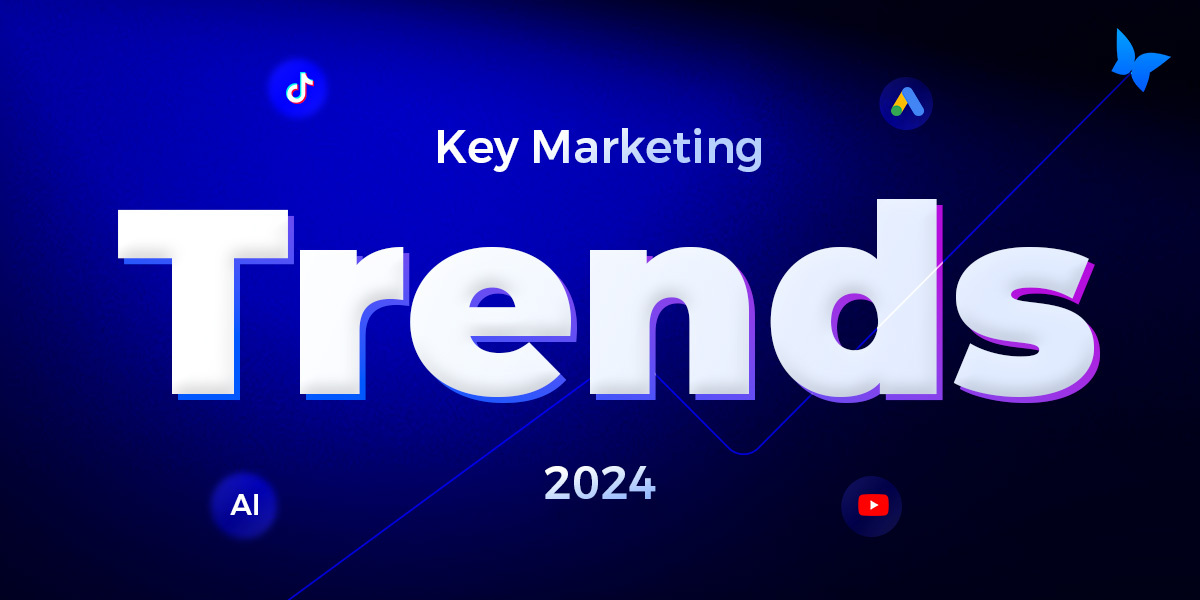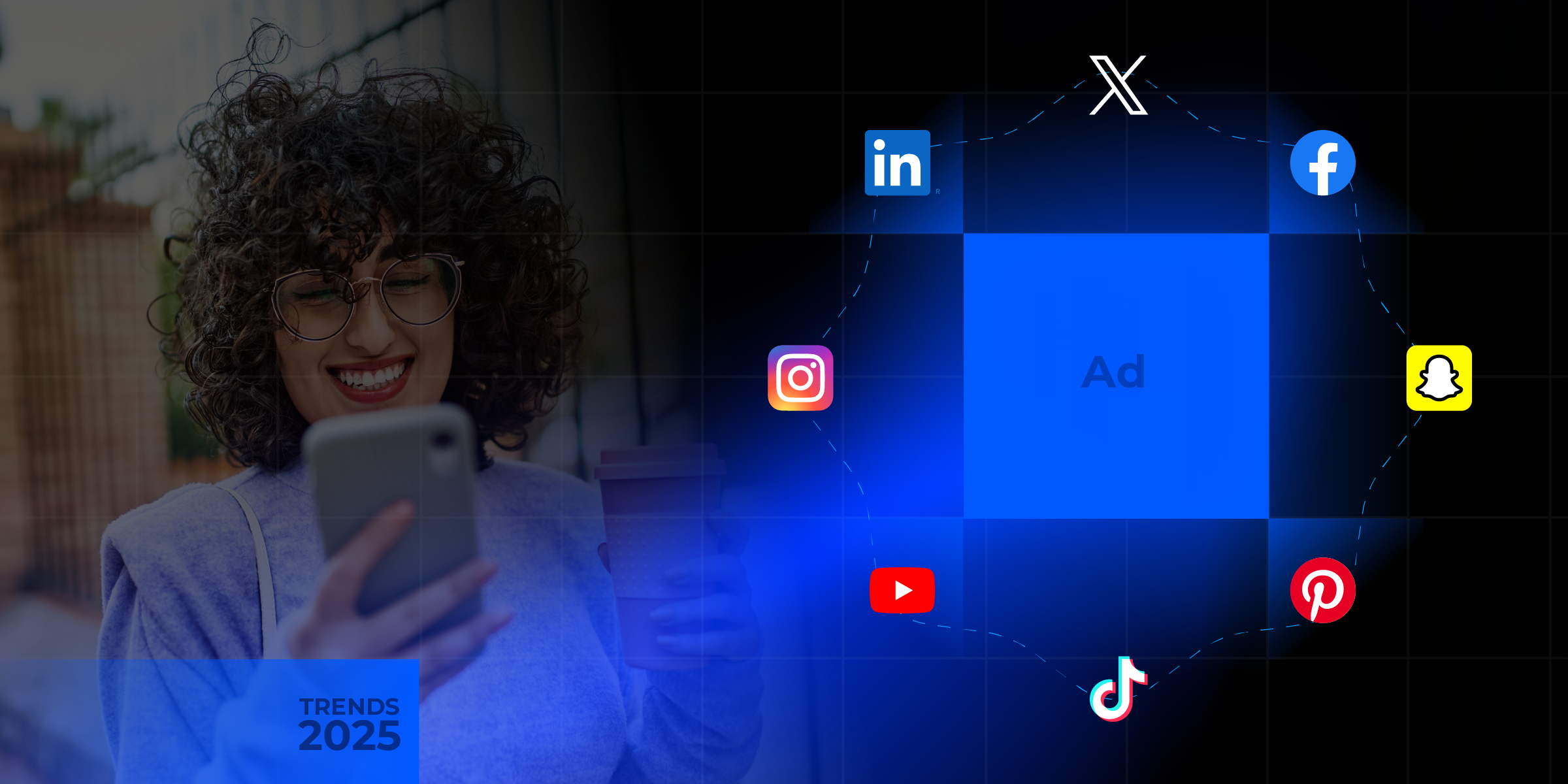As we enter 2024, digital marketers are navigating a landscape that's not just changing – it's transforming. One of the biggest game changers is the phase-out of third-party cookies. This significant shift is challenging us to rethink how we collect and use data, with a newfound focus on privacy and ethical practices. It's not just about adapting; it's about innovating how we connect with audiences.
Adding to this challenge is the reality of tighter marketing budgets. Economic pressures mean we need to be more strategic and resourceful, finding ways to maximise results without inflating costs. It's a balancing act – delivering impactful marketing campaigns while keeping an eye on the bottom line.
There's also a clear shift in how people want to engage with brands, especially on platforms like TikTok. Consumers are looking for authenticity and a human touch. The popularity of TikTok's short-form videos underscores this trend, signalling a move towards more genuine and spontaneous brand interactions. This isn't just a fleeting trend; it's a fundamental shift in consumer expectations, calling for a more sincere and engaging approach to brand communications.
In this blog post, we'll dive into the key trends shaping digital marketing in 2024. From the increasing reliance on generative AI to evolving strategies in influencer marketing, the importance of sustainable marketing, and the transformation of social media platforms into search engines – each of these trends offers insights into how we can not just keep up, but excel in the dynamic world of digital marketing.
The Increasing Role of Generative AI
Generative AI has become more than just a tool for automation; it's a catalyst for creativity and strategic planning in digital marketing. This technology is enabling marketers to analyse consumer data, predict trends, and generate content that resonates with target audiences. For instance, AI-driven tools can create personalised ad copies, suggest optimal posting times, and even recommend content strategies based on user engagement data. As AI becomes more sophisticated, its role in content creation, campaign optimisation, and customer engagement is growing exponentially. Marketers leveraging AI are finding new ways to connect with audiences, often in real-time and with greater personalisation.
Hyper-Personalisation through Real-Time Data and AI
Hyper-personalisation has become the gold standard in customer engagement. Using AI and real-time data, marketers can now craft individualised customer experiences at scale. This involves analysing customer interactions, purchase history, and even social media behaviour to deliver highly tailored content and offers. For example, e-commerce sites use AI to recommend products based on browsing behaviour, while email marketing campaigns are being personalised down to the subject line. The key lies in using AI to not only understand but also predict customer needs, creating a marketing experience that feels both personal and timely.
Emphasis on Sustainable Marketing
Sustainable marketing in 2024 goes beyond just eco-friendly products or green branding. It's about integrating sustainability into every aspect of the marketing strategy. This means considering the environmental impact of marketing materials, the ethical implications of supply chains, and how a brand's values align with its sustainability goals. Consumers are increasingly looking for brands that not only talk about sustainability but also demonstrate it through actions. This trend is seeing brands engage in transparent communication about their sustainability efforts, participate in social and environmental initiatives, and innovate in product and packaging design to minimise environmental impact.
Authenticity in Influencer Marketing
The evolution in influencer marketing is marked by a shift towards authenticity and meaningful collaborations. Brands are increasingly partnering with influencers who align with their values and ethos, rather than those with the largest followings. This trend is about building long-term relationships with influencers who can act as genuine brand advocates. Authenticity in this space is key; consumers can easily discern between a forced endorsement and a sincere recommendation. Successful influencer campaigns in 2024 are those that feel organic and offer real value to the audience, whether it's through engaging storytelling, unique insights, or exclusive offers.
Social Media as a Primary Search Engine
The role of social media platforms like TikTok as primary search engines marks a significant shift in how consumers seek and consume information. Brands need to understand the nuances of these platforms' search algorithms and user behaviour. This involves optimising content for discoverability, using relevant hashtags, engaging in trends, and creating content that answers common queries. It's also about being responsive and interactive, as users often use these platforms to ask questions or seek recommendations. Brands that can effectively leverage social media as a search engine will find themselves better positioned to reach their target audience directly and engagingly.
These trends offer a glimpse into the evolution of the digital marketing landscape in 2024. Embracing and integrating these trends into marketing strategies will be crucial for businesses looking to connect with their audience meaningfully and stay competitive in a rapidly changing environment.








